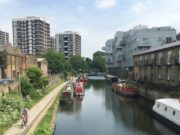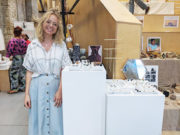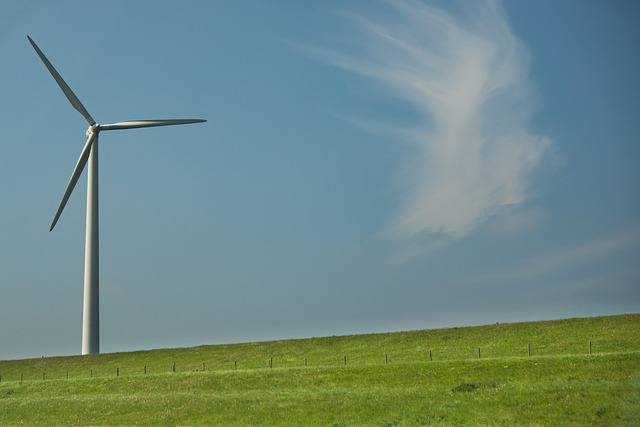by Victoria Gray
We all pretty much know what a carbon footprint is by now – the total amount of greenhouse gas emissions (CO) caused by a human activity, an event, a product or action. Usually, the bulk of an individual’s carbon footprint will come from transportation, housing and food.
Here are three lifestyle tweaks that can help Hackney residents reduce their carbon footprint in the local area, at home and in the long haul.
Start today: know where your food is from
Where your food comes from has a huge impact on climate change. Choose organic and local foods that are in season. Transporting food from far away, whether by truck, ship, rail or plane, uses fossil fuels for fuel and for cooling to keep foods in transit from spoiling.
If you have a spare corner of a garden, why not grow your own fruit and vegetables? See our interview with local gardener Joe Swift for inspiration!
If that’s not possible, buying produce from markets like Growing Communities gets rid of unnecessary packaging, reduces chemicals and removes the need for long-distance produce transportation.
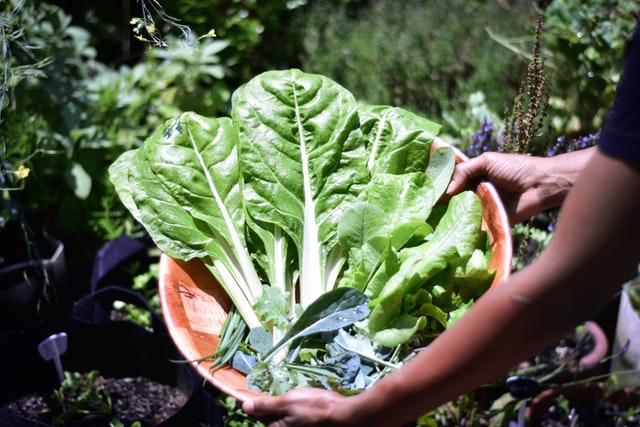
Try a local refill store to minimise packaging even further. Hackney has a wonderful range of zero-waste shops like Re: Store at Hackney Downs Studios, Bulk Market in Hackney Central or Mother Earth on Newington Green.
Bulk Market has also just started a DIY beauty bar. They tell us: “You can use the power of ‘voting with your spend’ to create demand for products and services that tackle problems like plastic pollution. When you support local businesses, your money stays in the local economy, creates jobs for locals and improves livelihoods”.
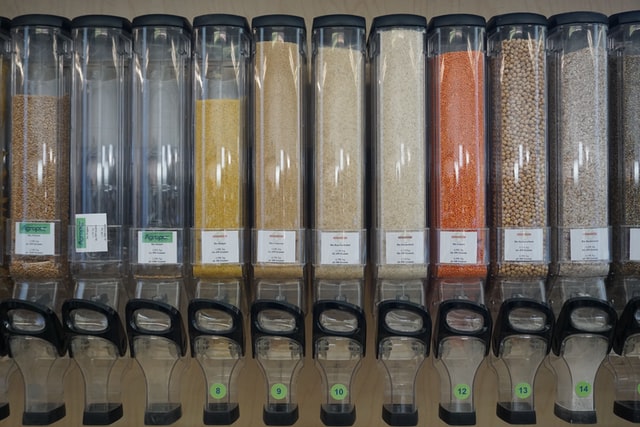
Reduce your food waste by planning meals ahead of time, freezing the excess and reusing leftovers.
Compost your food waste if possible.
Medium term choices: make your home and wardrobe eco-friendly
Can you reuse and repurpose items or refuse to buy as much? Recycling should only be an option after taking these steps. Slow down on impulse purchases, and shop at stores that sell reused and repurposed homewares, like Offcut Studios in Stoke Newington.

Don’t buy fast fashion. Trendy, cheap items that go out of style quickly get dumped in landfills where they produce methane as they decompose. The UK based charity WRAP (The Waste and Resources Action Programme) has estimated that £140 million worth of clothing (around 350,000 tonnes) goes into landfills each year, and a staggering £30 billion worth of unused clothing is still sitting in our wardrobes nationwide.
Saving energy at home can lower your bills too! For instance, a charger plugged into a charged phone uses two thirds as much energy as while charging. Being vigilant with all your appliances could save energy, as well as up to £30 a month.
When you feel you need to buy something, try to get it from a charity shop, borrow it from a neighbour or ask for it on Freecycle or Freegle, where people advertise things they want to get rid of.
Going off grid doesn’t necessarily mean selling your home and upping sticks to a forest to live in a hut. Around four million households are off the gas grid and rely on alternatives like LPG bulk tanks to heat their homes. LPG (liquified petroleum gas) is better for the environment than traditional fossil fuels such as coal and oil.
Long term lifestyle shifts
If going vegan sounds intimidating, fear not. Made in Hackney has just lined up its plant-based cooking classes for September (currently online), so make a start by trying your hand at Ethiopian Vegan Cuisine, or Gujarati Cuisine.

Founder Sarah Bentley tells us “class proceeds go towards providing meals to Hackney households impacted by COVID-19. If you’re in a position to make the change, eating more 100% plant-based meals is a win-win for your health, planet’s and the animals.”
Lockdown means we have reset our movements and therefore fuel consumption, so consider taking this further. Localising your daily movements to places reachable by walking or cycling has a significant impact. When you’re planning to travel again, choose the train instead of flying.
Avoid flying if possible; on shorter trips, driving may emit fewer greenhouse gases. Fly nonstop since landings and takeoffs use more fuel and produce more emissions. Go economy class. Business class is responsible for almost three times as many emissions as economy because in economy, the flight’s carbon emissions are shared among more passengers; first class can result in nine times more carbon emissions than economy. If you can’t avoid flying, offset the carbon emissions of your travel.
A carbon offset is an amount of money you can pay for a project that reduces greenhouse gases somewhere else. If you offset one ton of carbon, the offset will help capture or destroy one ton of greenhouse gases that would otherwise have been released into the atmosphere. Offsets also promote sustainable development and increase the use of renewable energy.
This calculator estimates the carbon emissions of your flight and the amount of money needed to offset them. You can purchase carbon offsets to compensate for any or all of your other carbon emissions as well.

























